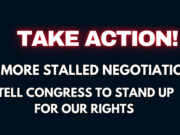Happy 2022 – the New Year in which all of our plans will come true! Or not? As it turns out, we are overly optimistic about the future and falsely believe that there is more time available tomorrow than there is today. However, the truth is that there is no ideal moment for those challenging tasks and those exciting new plans. Studies have shown that procrastination is a common and universal phenomenon. Many of us do it, often with stress symptoms as a result. But why do we decide to ignore those chores on the to-do list? This article explains why you procrastinate and how to stop.

The belief that good things will happen in the future is good for our overall well-being and health, increasing our self-confidence, motivation, and resilience. However, there is also a downside, for example, when it comes to bad habits. In this instance, “later” becomes a perfect excuse to put off difficult decisions and changes. Interestingly enough, we often view others as weak when they do not “just do it,” even though we are convinced that everything will be fine when it comes to ourselves. This is because we judge others on actual behavior and achievements, whereas we focus and believe in our good intentions, even if they are not yet realized.
Later is Easier
This optimistic perspective of our potential makes it seem like complex changes will be less of a burden later. Breaking up an unhappy relationship, quitting unhealthy habits or other inconveniences come with unpleasant feelings which prevent us from making the change today; we feel as if these feelings will be easier to deal with later. However, this is an unrealistic view: we will still be the same person with similar challenges and emotions. Time is something we feel there will be more of later on, which is antithetical considering that with the passage of each day there is less time left for the rest of your life.
How to recognize procrastination
These are some of the most common excuses that we all have most certainly used in our lives.
- Now is not a good time.
- I am not ready yet.
- I can stop if I want to.
- I am not as addicted as others, so I do not really need to stop.
- I have to be prepared first.
- Later, I will stop drinking, overspending, smoking, the unhealthy relationship, working too hard, working too much, ad infinitum.
- I will have more time later, more money and more space.
- Once I finish the small chores, I will be able to focus on the big tasks.
- During the holidays, I want to eat well, so after the holidays is better.
- I will start after Christmas, vacation, in the New Year. . .
The concept that “later will be a better time” helps protect our self-image as sensible, reasonable, autonomous people. By procrastinating, we avoid having to deal with the challenges that come with the change. However, the result is counterproductive; the message that you should have improved/changed/made that decision continues to nag in the back of your mind. Additionally, the longer you wait, the more difficult it gets to take the step.
Procrastination leads to cancellation
Here are some tips to motivate yourself to do things today:
- To determine a direction, it might help to think about where you want to be in five years. What kind of person do you want to be? What are your ideals? What do you want to have achieved? As much as possible, convert this into concrete action points and try to stick to them, even if it is not convenient. Would you do it “later”? If yes, do it now!
- Observe and reflect on your own behavior as would perceive other people's actions. Pretend to be an outsider and consider what you are concretely doing, not the intentions, plans, desires, and motives behind it. This approach will make your self-image more honest and realistic.
- Are you convinced there will be more time for an activity or change in the future? Imagine that it is not “later,” but now. Would you have time for it if it had to be done now? If not, you probably would not in a few months from now either.
- If you have to deny something enjoyable in the present, try to envision the positive effects in the future as concretely as possible. Envision the result of ending that addiction, the unhappy relationship or seeing the impact of the hard work. Ask yourself what that result looks like and focus on all the details of that moment.
- Conversely, reflect more globally on the here-and-now. For example, instead of, “Oh, that one extra (drink/snack/hour on the couch),” think, “How much will I have in a week if I do this every day?”
- Try to view your future self through the lens of someone you care about and who has your best interests at heart. When feeling afraid of something, ask yourself, “What will it be like in a month or two years if I postpone? How will I feel then? Is there anything I can do now to make it easier?
- Keep the long-term goal in mind. When struggling with temptation, translate the behavior into terms of serving a more profound plan. When exercising, appreciate the moment and actively think, “My body is hard at work; I am working on my health to____ (insert your goal here, for example, stay fit to play soccer with my children).”
Final Note
If you experience tension and discomfort as a result of stopping drinking, smoking, Facebooking, or another addiction, then think, “The worse I feel, the clearer it is that this was necessary and good for me.” Finally, think of the liberation you are working toward. And tasks require effort. Remember to think, “When I accomplish this, I will have improved my self-discipline, autonomy, perseverance, self-control, etc. The more I do this, the stronger I become.” And finally, if you are planning to make New Year’s Resolutions, review the WOOP method as described in How To Make Your New Year’s Resolutions Last.
























































